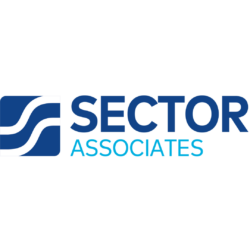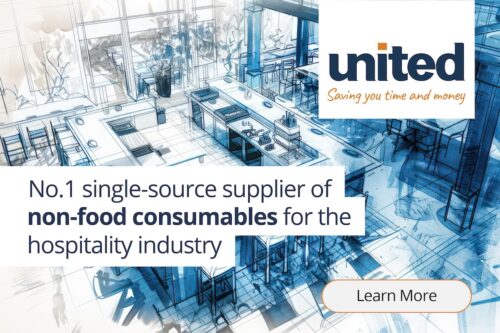Understanding the impact of the ‘At The Premises’ ruling on business interruption insurance
By Steven Swift, Director of Sector Associates, Leisure and Hospitality Insurance Specialists
The insurance industry witnessed a significant development just before Christmas 2024, as insurers were denied the right to appeal the “At The Premises” (ATP) ruling in relation to business interruption (BI) policies. This ruling, while not a solution to all the challenges faced by policyholders, represents a noteworthy milestone in the ongoing legal and insurance landscape shaped by the Coronavirus pandemic.
Here’s what this means for operators in the leisure and hospitality sectors.
Background: business interruption and the FCA test case
The COVID-19 pandemic caused widespread disruption across industries, leading to significant financial losses for businesses.
Many policyholders turned to their insurance policies to recover these losses. However, ambiguity around policy wordings and coverage led to widespread disputes.
In 2020, the Financial Conduct Authority (FCA) launched a test case to address this issue. Representing policyholders’ interests, the FCA sought to clarify the validity of claims under Business Interruption insurance policies. The test case highlighted that 370,000 policyholders held approximately 700 types of policies issued by 60 insurers, all of which could potentially be affected by the court’s decision.
The Supreme Court’s 2021 ruling focused on policies with “radius” wordings, which provided coverage for losses arising from disease occurrences within a specified radius of the insured premises. This ruling did not, however, address policies with ATP wordings, which cover losses directly attributable to the occurrence of disease at the insured premises.
The ATP test case and recent developments
Due to the exclusion of ATP policies from the FCA test case, many insurers refused to accept claims under these policies, resulting in additional litigation.
Recognizing the need for clarity, the Commercial Court expedited six test cases for preliminary issue trials in May 2023, with London International Exhibition Centre Plc (ExCeL) serving as the lead claimant.
On September 6, 2024, the Court of Appeal ruled in favour of the ExCeL Centre’s owners, affirming that policyholders with ATP wordings could claim for losses directly linked to COVID-19 occurrences at their premises. Crucially, the court refrained from addressing how the presence of COVID-19 at a premises should be evidenced, leaving it to insurers to adopt a pragmatic approach to avoid further legal disputes.
In December 2024, insurers’ application to appeal this ruling was denied, solidifying the Court of Appeal’s decision as a significant victory for policyholders.
What this means for policyholders
For operators in the leisure and hospitality sector, this ruling represents a significant shift.
However, it’s important to note that this development doesn’t guarantee payouts for every policyholder.
Here are the key implications:
- Evidence of COVID-19 at the Premises: Policyholders must provide clear evidence of COVID-19 occurrences at their insured premises to support their claims. This could involve medical reports, government data, or other reliable sources confirming cases on-site. Also consider communications and records with staff or visitors and the symptoms demonstrated.
- Insurer Pragmatism: While the court avoided detailing evidentiary requirements, insurers are expected to adopt a pragmatic approach to avoid further litigation. Operators should work closely with their brokers and legal advisors to present robust evidence and negotiate claims effectively.
- Time Sensitivity: Under the Limitation Act, policyholders in England have six years, and those in Scotland have five years, to bring legal action against insurers. For COVID-19-related claims, this means the window for initiating lega action will close by early 2026.
- Evolving Claims Landscape: Since the FCA test case, over 100 court cases have been filed concerning COVID-19 business interruption claims. This evolving landscape highlights the importance of staying informed and proactive in addressing potential claims.
A step forward for policyholders
The denial of the insurers’ appeal marks a turning point in the fight for fair treatment of policyholders.
As Steven Swift, Director at Sector Associates, stated, “We see this as a significant win for policyholders and welcome the court’s decision. The trading landscape for operators certainly isn’t easy but hopefully this development can help some firms access the insurance compensation they deserve.”
While the ruling brings hope to many operators, it is not a blanket solution. Each claim’s success depends on the specific policy wording, the quality of evidence presented, and the approach taken by insurers. Policyholders should seek expert guidance to navigate this complex environment effectively.
Joanna Grant, Managing Partner at Fenchurch Law, advises, “Policyholders with unpaid COVID claims who can evidence a case of COVID at the premises should act now before their claims become time-barred.”
Practical steps for operators
For businesses looking to leverage the ATP ruling, consider the following steps:
- 1
Review your policy
Understand your policy wording and whether it includes ATP coverage. Consult with your broker or legal advisor for clarity.
- 2
Gather evidence
Compile evidence of COVID-19 cases at your premises, including official health records, communications including text messages, WhatsApp and and visitor logs.
- 3
Act promptly
With limitation periods approaching, ensure your claim is filed within the stipulated timeframe to avoid losing your right to compensation.
- 4
Seek expert advice
Work with specialists in insurance and litigation to strengthen your case and negotiate effectively with insurers.
The road ahead
The ATP ruling is a significant development in the post-pandemic insurance landscape, offering a glimmer of hope to operators who suffered immense losses during COVID-19.
However, navigating the complexities of BI claims requires diligence, expertise, and proactive action.
By staying informed and working with industry specialists, operators in the leisure and hospitality sector can maximize their chances of recovering losses and securing a stable financial future. This ruling is not just about compensation; it’s about fairness and resilience in the face of unprecedented challenges.
Find out more about Sector Associates
Steven Swift – Director
Tel: 01845 527428 Mobile: 07957 096375
Email: [email protected]
Unit 1 | Enterprise House | Thirsk | YO7 3XB







